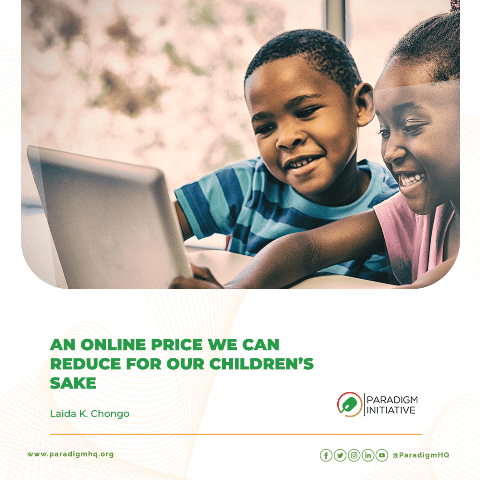In the Covid 19 pandemic era, it is seen that there has been an unprecedented use of the internet among many age groups. The internet has become the most sought-after tool for acquiring and disseminating information.
At a global level according to the United Nations International Children’s Emergency Fund (UNICEF), it is estimated that one child in three is an internet user and that one in three internet users is a child under 18 years of age, using mobile phones to connect.
In as much as the Internet is a force of good and children are using it to access education, watch cartoons, play games and consequently parents use it as their baby sitter, giving them time to work especially when working remotely from home. Stakes are high on children in a certain age bracket that may want to explore what is behind parental control settings.
While the internet is beneficial to our children, it is important to educate our children about its pitfalls. There are predators on the internet but also children may end up victims of their circumstances. What they experience or post online may have irreparable effects on their lives.
Susan (pseudo name) is now in her early thirties but battling with issues of self-worth because her male friend had a nude video leaked on the internet a few years earlier. The internet comes with a heavy price to pay and parents can help reduce it by constantly sensitizing children on how to be safe online. For younger children, parents may be directly involved and be in control over what they are exposed to online.
It is easy for parents to regulate younger children in their early years, but it becomes much harder for children in their teenage years who usually consume information anyhow even that which is not meant for them, but they tend to do so out of curiosity. In most cases, children tend to be more digital-savvy than parents and may evade parental guidance which makes it impossible for parents to regulate their internet use.
While Zambia has different definitions, of who a child is as the Penal Code chapter 87 of the Laws of Zambia and the Juveniles Act chapter 53 of the Laws of Zambia have different definitions. That is food for thought for Zambian lawmakers as they need one definition of who a child is, but all in all, all children and young people need to be protected online.
According to National child online protection Zambia, Children continue to be exposed to a vast array of online risks such as obscene materials, pornography, and cyberbullying among others at an early age. Additionally, the global shift toward mobile internet use, spearheaded by social media, has contributed to the increase in cybercrime and child online abuse activities.
Nevertheless, parents/Guardians do have a big role to play when it comes to protecting their children online. For instance, in as much as children can be victims, other studies have shown that children can also be perpetrators. Parents can help prevent their children from being either of these by talking to them about online abuse and behaviors. Behaviors such as sharing pornographic material or taking nude pictures and videos of themselves, downloading sexual content, and bullying online among other things.
In Zambia, there is a growing culture of parents excessively posting online (Sharenting) almost every detail of their children. Videos, images, and many other posts that may likely endanger their children’s future have been ignorantly posted on the internet.
For instance, late this year, a very disturbing video was posted on social media of a young girl narrating every detail of how she was defiled, and a grieving guardian captured the video. The video begins to trend with many requests for sharing and reposting and I assumed that parent is not aware of the grave negative impact that the video will have on this child’s future.
The UN General Comment No. 25, states that States parties should ensure that appropriate legislation is in place to protect children from the crimes that occur in the digital environment, including fraud and identity theft, and to allocate sufficient resources to ensure that crimes in the digital environment are investigated and prosecuted.
State parties should also require a high standard of cybersecurity, privacy-by-design, and safety-by-design in the digital services and products that children use, to minimize the risk of such crimes. Zambia has legislation that is meant to protect children online but the current practice is of people being hyper to receive obscene content is worrisome.
There is an African proverb that states “It takes a village to bring up a child” The same would apply when it comes to children’s online protection. It is a collective responsibility and it requires a mindset change. A change will spark the emergence of a new crop of thinkers that will see to it that they determine well what to post, report and what to delete without hesitation.
Further, there is a need for mass sensitization among parents and guardians but also the public in general about ways in which they can participate in protecting children online.
By Laida K. Chongo | Digital Rights and Inclusion Media Fellow | Paradigm Initiative



One Response
This is informative. Brilliant piece